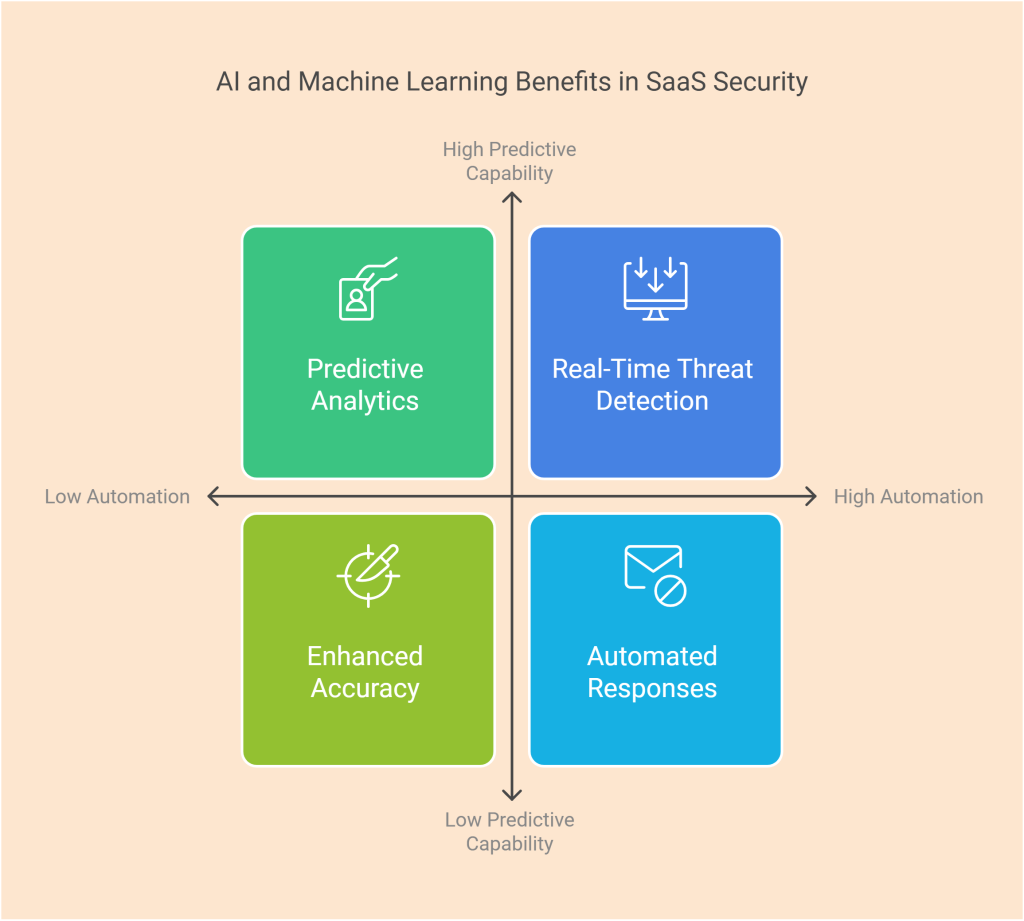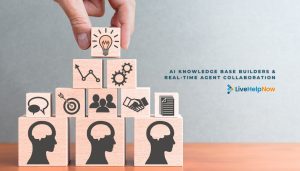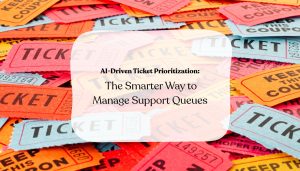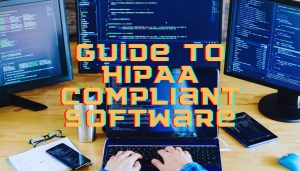- What is SaaS security?
- Importance of Data Protection in the SaaS Industry
- Advanced Encryption
- Multi-Factor Authentication (MFA)
- Compliance with Data Protection Regulations
- Regular Security Audits and Vulnerability Assessments
- AI and Machine Learning
- Incident Response Plans
- Integration Platforms as a Service (iPaaS)
- Data Privacy
- Securing APIs
- User and Employee Education
- Conclusion
As the SaaS industry grows, so does the demand for strong SaaS security policies. Cyber threats keep evolving, making it vital for SaaS providers to stay ahead. Here are key SaaS security measures to protect your data in 2024.
What is SaaS security?
SaaS security protects data, apps, and systems in cloud-based environments. SaaS apps run online, exposing them to risks like data breaches and unauthorized access. Key measures include encryption, anti phishing software, multi-factor authentication (MFA), and real-time threat detection. Regular audits ensure compliance and system integrity. As explained in the Younium subscription billing guide, other implementable security measures include firewalls, PCI compliance, and routine updates. These steps secure sensitive data and protect user privacy. Strong security strategies help businesses reduce risks and meet regulations. They also build trust with customers using cloud services.
Importance of Data Protection in the SaaS Industry
As businesses rely more on cloud solutions, data protection is crucial. Robust SaaS security measures like encryption and multi-factor authentication are vital. Regular security audits help prevent breaches, with studies showing that companies conducting frequent audits reduce data breach costs by 47%. These steps ensure compliance with regulations and build customer trust. Investing in SaaS security maintains data integrity, confidentiality, and availability, ultimately leading to 60% fewer customer churn incidents due to data breaches.
Advanced Encryption
Encryption is essential for data security. By converting data into secure code, only authorized users can access it through a cloud access security broker. Use end-to-end encryption for data in transit and at rest to fend off threats. According to Ponemon Institute, 50% of organizations experience fewer data breaches after implementing encryption. Advanced encryption protocols can reduce the risk of cyber-attacks by 40%.

Multi-Factor Authentication (MFA)
MFA adds an extra security layer. Requiring two or more verification factors greatly lowers the risk of unauthorized access.
Did you know? MFA can block up to 99.9% of automated attacks? It’s a must-have for your security strategy. Moreover, organizations using MFA experience a 70% reduction in phishing incidents.
Trending Now
At Black Hat USA 2024, AppOmni analyzed 230 billion SaaS audit log events. They found many security incidents involve fast “smash and grab” attacks, where hackers use legitimate credentials to quickly steal data, bypassing traditional defenses. The study highlights the need for a robust zero trust policy and effective MFA to counter these threats. Many attacks on Microsoft 365 originated from large Chinese networks, stressing the need for heightened security vigilance.
Compliance with Data Protection Regulations
Complying with regulations like GDPR, CCPA, and HIPAA is crucial. It not only keeps you legally compliant but also strengthens your data protection practices. Staying updated on regulatory changes and regular security audits are essential for maintaining a strong security posture. Failure to comply can result in fines up to €20 million or 4% of annual global turnover, whichever is higher.
Regular Security Audits and Vulnerability Assessments
Regular security audits and vulnerability assessments help identify weaknesses before they cause issues. These assessments should thoroughly evaluate your entire SaaS platform, including email authentication protocols like DMARC and DKIM, which help prevent phishing and spoofing attacks. Engaging a cybersecurity services provider ensures that audits are conducted with industry-leading expertise, addressing vulnerabilities proactively. Address any vulnerabilities immediately to strengthen overall security.
Patching and Updating
Keeping software and systems up-to-date is crucial for security. Regularly apply patches and updates to fix known vulnerabilities and improve functionality. Unpatched systems in a SaaS app are prime targets for attackers, so timely updates are essential for cloud security.
Tip: Implement a patch management schedule that prioritizes critical updates and includes regular checks to ensure all systems are current. A practical way to approach this is to pick a single patch management tool to start with, and then explore its alternatives — for example, searching for PDQ alternatives to compare features and find the right fit for your environment.
AI and Machine Learning
AI and machine learning revolutionize SaaS security. These technologies detect and respond to threats in real-time, recognize malicious patterns, and even predict potential incidents. They add advanced intelligence to your security measures. Gartner predicts that by 2025, AI will be involved in 80% of cybersecurity solutions, significantly enhancing threat detection and response times.
Here are the top five benefits of integrating AI and machine learning into SaaS security measures, ensuring robust protection and peace of mind for businesses and their customers.
- Real-Time Threat Detection: AI and machine learning can analyze vast amounts of data in real-time, identifying potential threats and anomalies as they happen, which allows for immediate responses to security incidents.
- Predictive Analytics: These technologies can predict potential security breaches by recognizing patterns and trends from historical data, helping to prevent attacks before they occur.
- Automated Responses: AI can automate responses to certain types of threats, reducing the need for manual intervention and speeding up the mitigation process. This includes automatically blocking suspicious IP addresses or isolating compromised accounts.
- Enhanced Accuracy: Machine learning algorithms improve over time as they are exposed to more data, leading to more accurate threat detection and fewer false positives compared to traditional security measures.
- Improved Incident Response: By quickly identifying and prioritizing security incidents, AI helps security teams respond more effectively and efficiently, minimizing the impact of breaches.

Incident Response Plans
A solid incident response plan is vital for reducing the impact of breaches. It should cover detection, containment, eradication, and recovery. Regular drills and updates keep your team prepared to respond swiftly. Companies with a tested incident response plan can reduce the cost of a breach by an average of $1.2 million.
For MSPs securing multi-tenant SaaS environments, pair zero trust and MFA with extended detection and response solutions for MSP to unify telemetry across endpoints, networks, and cloud workloads. Purpose-built XDR for service providers streamlines cross-tenant threat hunting, automates containment (isolation, rollback), and integrates with backup and patching—helping you reduce dwell time and accelerate incident response without adding headcount.
Integration Platforms as a Service (iPaaS)
iPaaS solutions enable seamless communication between software applications, enhancing data flow and security. They automate secure data transfers across systems. The iPaaS market is growing rapidly, with a projected CAGR (Compound Annual Growth Rate) of 22% from 2023 to 2028, highlighting its importance. This growth underscores the need for secure, efficient integration solutions.
Data Privacy
Protecting customer data privacy is crucial for trust and reputation. Enforce strict privacy policies, anonymize data, and be transparent about usage. These practices help prevent data leaks and protect your brand. According to Cisco, 81% of consumers care about data privacy, and 48% have switched companies due to data privacy concerns.
Here are the six most important SaaS security best practices to ensure robust data privacy and maintain customer trust:
- Conduct Regular Data Audits: Regularly audit data practices in your SaaS environment to ensure compliance, identify vulnerabilities, and keep protection measures updated.
- Use Strong Encryption: Encrypt sensitive data in transit and at rest to keep it secure, even if intercepted, and protect customer information from breaches.
- Access Controls and Authentication: Use strict access controls and multi-factor authentication to limit sensitive data access to authorized personnel only.
- Regular Training: Train employees on data privacy policies and secure handling practices to reduce human error and stay updated on potential threats.
- Data Breach Response Plan: Create a response plan to minimize breach impact by outlining steps for quick action and communication with affected parties and regulators.
- Data Privacy: Use Usercentics data privacy tools to automate compliance and manage user consent.
Securing APIs
APIs are crucial for SaaS but can pose security risks if not properly secured. Implement strong authentication and authorization protocols, monitor and test APIs regularly, and encrypt data to prevent unauthorized access. API breaches account for 30% of all data breaches, making their security a top priority.
User and Employee Education
Human error often leads to security breaches. Educate users and employees on SaaS security best practices, such as spotting phishing attempts and using strong passwords. Regular training and awareness programs greatly reduce cyber threats. Additionally, implementing password managers, such as NordPass , can further enhance security measures. For more details, you can check Cybernews’ NordPass review.
Tip: Encourage employees to use a password manager to create and store strong, unique passwords for each account, making it easier to maintain good security habits.
Conclusion
By staying informed and applying these top SaaS security measures, you can protect your data, comply with regulations, and build user trust. As cyber threats evolve, vigilance and proactive steps are crucial to securing your SaaS applications.
Interested in learning more about how these security measures can be applied to your SaaS platform? Start your 30-day free trial today to see our comprehensive security features in action. Get hands-on experience with our state-of-the-art encryption, multi-factor authentication, and real-time threat detection powered by AI and machine learning. Stay secure and compliant with ease.




